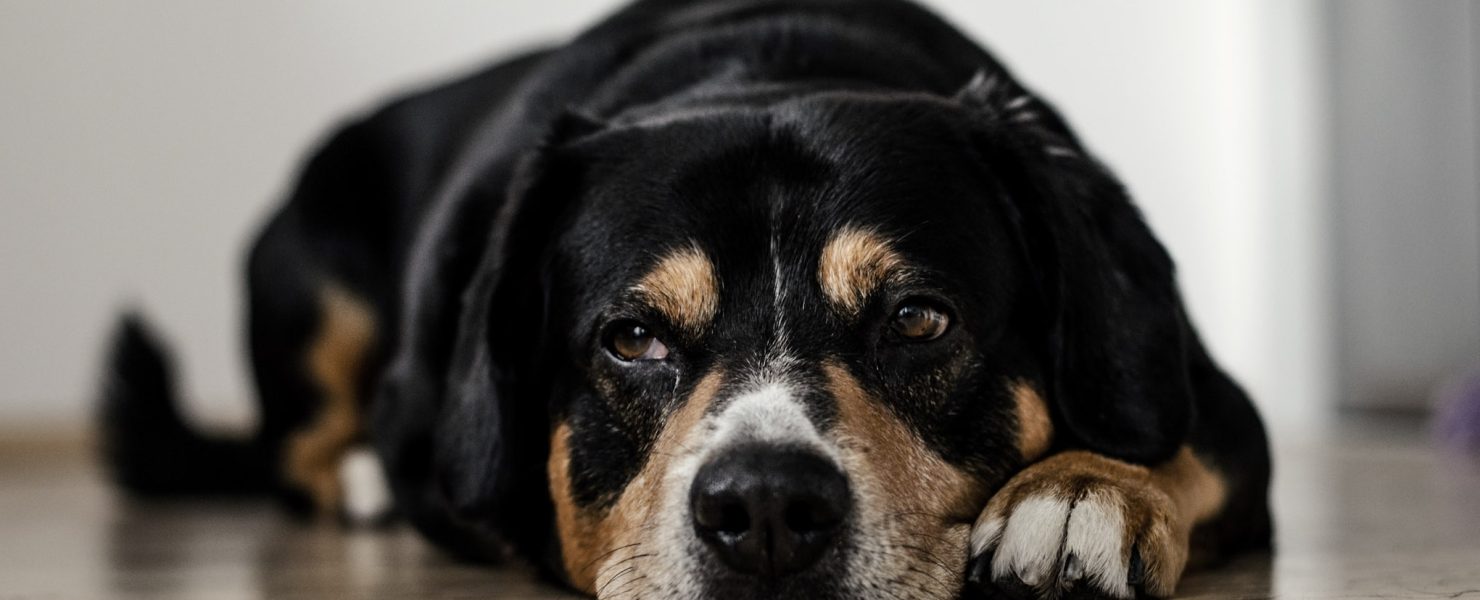
Parvovirus… it’s a diagnosis that every pet parent and vet clinic dreads, and one that can take the life of a previously healthy puppy in a matter of days. Canine parvovirus is a highly contagious viral disease that affects dogs, particularly puppies. It is a serious and potentially fatal illness that can cause severe gastrointestinal symptoms and weaken the immune system.
Thankfully, it’s not all doom and gloom and this article will give you the information you need to protect your dog from this potentially deadly disease.
Canine parvovirus (CPV) is caused by a highly contagious virus that only affects dogs. Cats suffer from their own version of this virus, causing a disease known as panleukopenia. While all dogs can be affected, it is puppies that are most vulnerable, with older and immunocompromised individuals also at a higher risk of suffering more serious illness.
One of the challenges of CPV is that its structure makes the virus resistant to many disinfectants and it can survive in the environment for a long time.
CPV is primarily transmitted through direct contact with infected faeces or vomit. Dogs can also contract the virus by coming into contact with contaminated objects, such as food bowls, toys, or clothing. The virus can also survive in the environment for up to a year, making it difficult to eradicate. Contact with an infected environment, such as soil, bedding, and kennels, is also a common source of infection.
Puppies between the ages of about 6-20 weeks are most susceptible as their immune systems are not fully developed and their vaccine course is incomplete. Black and tan puppy breeds, such as Rottweiler’s and Dobermanns are also at a higher risk as they may not respond to vaccines until they are a little older.
While puppies often get the headline infection, older dogs can also become infected and very unwell. This is especially the case if they have not been properly vaccinated or have a weakened immune system.
Even if they don’t become particularly unwell, adult dogs can also act to spread the infection to more vulnerable individuals.
The symptoms of parvo can vary depending on the severity of the infection and the strain of the virus. In general, the virus attacks rapidly dividing cells in the body, particularly those in the gastrointestinal tract and bone marrow. This can lead to a range of symptoms, including:
Make no mistake, parvovirus is an incredibly serious disease that is potentially fatal for several reasons.
If you suspect that your dog may have CPV, it is important to seek veterinary care immediately.
Your veterinarian will perform a physical exam and may recommend blood tests, faecal tests, and imaging tests to make a diagnosis. A faecal test is the most common method of diagnosing CPV. This involves testing a sample of your dog’s faeces for the presence of the virus. This test can often be run straight away in the vet clinic and is very accurate if a dog is unvaccinated.
Unfortunately, a history of recent vaccination can complicate this faecal test making it much less reliable.
Blood tests can also be used to detect the virus or antibodies to the virus in the bloodstream, as well as help assess the health of the rest of the body to better target and monitor treatment.
Imaging tests, such as x-rays or ultrasounds, may be used to rule out other potential causes of your dog’s illness, assess the severity of the infection, and look for any potential complications.
There is currently no specific treatment for parvo in New Zealand.
Treatment is instead symptomatic and aimed at supporting a dog’s body while also correcting and preventing complications. This may include:
In most cases of parvovirus, this intensive treatment needs to be carried out in the isolation ward of the veterinary clinic, with hospitalisation typically being required for three to seven days.
A new, highly targeted monoclonal antibody parvovirus treatment is available overseas but is not currently available in NZ.
While parvovirus is invariably fatal in puppies if left untreated, the good news is that when caught early and with intensive treatment, over 80% of dogs will survive. The level of care needed will however likely come with a substantial cost running into the thousands of dollars.
Rather than running the parvo gauntlet, the best way to prevent CPV is undoubtably through vaccination.
Puppies should receive a series of vaccinations starting at 6-8 weeks of age, with boosters every three to four weeks until their final puppy vaccination at 16 weeks of age.
Another booster vaccine is given 6 months to 1 year later before switching to a three-yearly vaccination schedule.
Just as importantly, limiting your dog’s contact with unknown dogs and areas of high dog traffic is just as important while your puppy is going through their initial vaccination program, and until 10 days after their final 16-week vaccination.
This means sticking to socialisation with known dogs who are both healthy and fully vaccinated, while at the same time avoiding dog parks and other areas people routinely exercise their dogs.
Puppy classes are another great opportunity for your dog to meet other puppies while also learning to love their local Vetlife clinic!
Canine parvovirus is a serious and potentially fatal disease that can affect dogs of all ages, with puppies being most at risk. It is highly contagious and can be difficult to eradicate from the environment. This means that if vaccine levels of a local dog population begin to drop, parvo outbreaks are often seen.
While intensive treatment at the veterinary clinic has a good chance of saving a puppy suffering from parvovirus, prevention is a much better strategy with vaccination being highly effective at protecting your dog from this terrible disease.
To find out more, or to book a health check and vaccination for your dog, please contact your local Vetlife clinic.